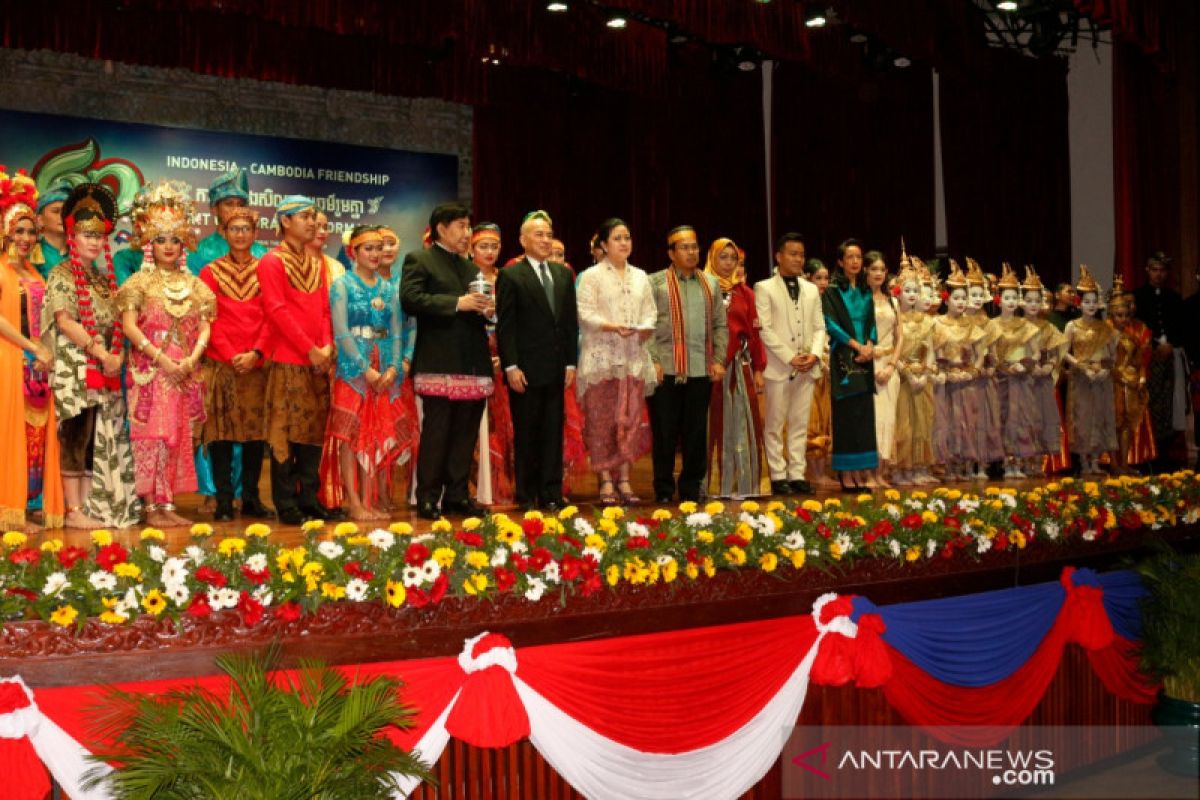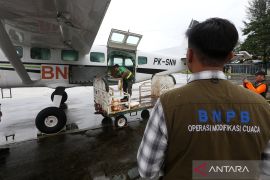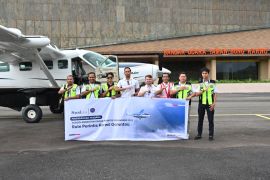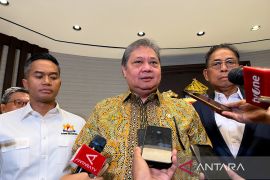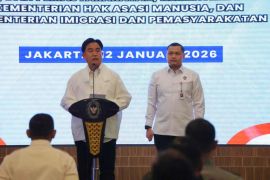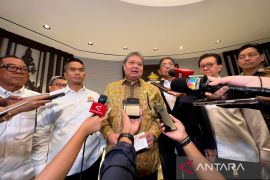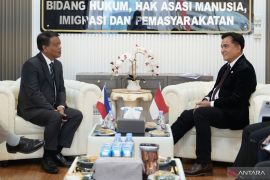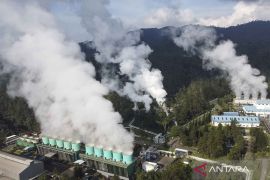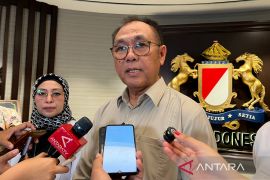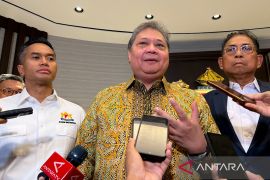Jayawarman II is known to have lived in Java and returned to Cambodia to unite it since it was divided into several small kingdoms.
Indonesia`s Borobudur temple, built in the early ninth century, is often considered to have cultural ties with Cambodia`s Angkor Wat temple built during the Jayawarman II Dynasty.
Hence, the two countries have similar ancient inheritance and both temples -- the Borobudur and Angkor Wat -- have been designated by UNESCO as World Heritage Sites.
"Indonesia has many cultural similarities with Cambodia, in the form of historical relics, such as the Borobudur and Angkor Wat temples as well as the existence of Buddhist communities in each country. Angkor Wat was built initially in the Hindu period in Cambodia, and due to a dynasty change, it was converted into a Buddhist temple," Indonesian Ambassador to Cambodia Sudirman Haseng remarked.
Cultural cooperation
The cultural similarities between Indonesia and Cambodia have encouraged the two nations to continue developing their ties into various forms of cultural cooperation to this day.
The governments of Indonesia and Cambodia had, on February 26, 2009, signed a memorandum of understanding (MoU) on Cultural Cooperation that became the legal basis for both countries to further develop cultural cooperation in a bilateral context and under the framework of managing the world cultural heritage.
Indonesia, with experience in the restoration project of Borobudur temple, has lent its expertise in an effort to conserve Angkor Wat. Indonesia is one of the countries that provided assistance in the Angkor Wat restoration project.
In addition, the Central Java and Siem Reap provincial governments in 2007 signed the MoU on Sister Temple Province Cooperation for managing the Borobudur and Angkor Wat temples. The cooperation covers the fields of tourism, culture, education, investment, industry, and trade.
Furthermore, the Seminar on the Establishment of Sisters Sites of Borobudur and Angkor Wat World Cultural Heritages, held in Siem Reap in December 2009, resulted in an agreement between the authorities of both temples to conduct joint promotions, including the idea of selling Borobudur-Angkor Wat tour packages at various international events.
The Indonesian Embassy in Phnom Penh in August 2018 had also facilitated a meeting between the authorities of both temples and representatives of the Cambodian Ministry of Tourism to explore the "Twin World Heritage between Borobudur-Angkor Wat" cooperation.
If realized, the cooperation is expected to increase the flow of tourists, especially by drawing on the similarities of Borobudur and Angkor Wat. Hence, Ambassador Haseng said it has become one of the main targets in the cultural cooperation between Indonesia and Cambodia.
"We need a strategy to make tourists visiting Angkor Wat continue their visit to Borobudur," he noted.
While attending the commemoration of the 60th anniversary of Indonesia-Cambodia diplomatic relations, Indonesian Coordinating Minister for Human Development and Culture Puan Maharani expressed the same hope on the realization of the Borobudur-Angkor Wat tourism cooperation.
"I hope that my visit to Cambodia would further encourage the actual implementation of the MoU between Indonesia and Cambodia on cultural cooperation and the MoU of Sister Temple Province Cooperation," Maharani remarked.
Cultural cooperation between the two countries was also manifested in the establishment of the Indonesia-Cambodia Friendship School in Prey Veng in 1995. The school, funded by the Indonesian private sector, aims to improve education cooperation with Cambodia.
Furthermore, in April 2018, the Indonesian Embassy, in collaboration with the Ministry of Youth and Sports, presented an Indonesian arts team at the International Youth Educational and Cultural Festival (IYECF) in Siem Reap, Cambodia.
Cultural diplomacy
In an effort to encourage people-to-people contact between the two nations, the Indonesian Embassy in Phnom Penh, through cultural diplomacy, utilizes various cultural activities to improve interaction between Indonesian and Cambodian communities.
"This cultural relationship in time will increase people-to-people contact, which in turn can help build networks for various forms of cooperation, especially business," Made Santi Ratnasari, information and social culture function executive of the Indonesian Embassy in Phnom Penh, stated.
"This is part of soft power diplomacy. Cultural diplomacy is the most beautiful diplomacy because it does not have to be shaken at the negotiating table," she stated.
One of Indonesia`s cultural diplomacy efforts in Cambodia was conducted through the Indonesian Cultural Center established in 2007 in Phnom Penh.
Cultural activities at the Indonesian Cultural Center (ICC) in Phnom Penh are conducted regularly every month for the Cambodian public interested in learning Indonesian arts and culture. Activities conducted at ICC include Indonesian language class and practice of traditional musical instruments and traditional dances.
"Since 2010, the ICC has held classes to teach how to play traditional Indonesian musical instruments, such as angklung, kolintang, and gamelan. Some Cambodians, who at first learn Indonesian language, are then interested in learning Indonesian traditional music and dance," Roland Uly Uju, a teacher at ICC in Phnom Penh, stated.
Roland argued that the traditional musical instrument class is a powerful tool to promote Indonesian culture in Cambodia since the two nations share cultural similarities.
The existence of ICC has also allowed the Indonesian Embassy in Phnom Penh to conduct cost efficiency by mobilizing sufficiently skilled students from ICC to perform traditional dance and music when the Indonesian mission must participate in cultural events in Cambodia.
The Indonesian Embassy in Phnom Penh noted that the ICC, established in 2007 so far, has had 859 Cambodian students currently engaged in some professional careers in different fields. Those Cambodian students in turn may help the Indonesian Embassy to build a strong network supporting various diplomatic activities.
"They who learn Indonesian language and culture at ICC work in various fields and in different institutions in Cambodia. We make them as our networks to build relations with the right channel. They can speak Indonesian, and they understand and know our culture. They can be an asset for us," Ratnasari from the Indonesian Embassy noted.
Cultural collaboration
The long-fostered cultural ties and cooperation between Indonesia and Cambodia finally led to a beautiful collaboration at the event of Indonesia-Cambodia Friendship Joint Cultural Performance to celebrate the 60th anniversary of diplomatic relations between the two countries.
The Joint Cultural Performance event presented collaborative cultural performances comprising Indonesian and Cambodian dances and songs presented by the Ballet of the Kingdom of Cambodia and Indonesian traditional dances performed by the Kinarya Gencar Semarak Perkasa dance group formed by Guruh Soekarno Putra, the son of Indonesia`s first president.
In addition, the event was enlivened by some angklung and kolintang musical performances from the Indonesian Cultural Center and a Mini Chamber Orchestra composed by Indonesian pianists in Cambodia, Metta Legita.
Several traditional Indonesian dances also performed at the joint cultural event included the Gending Sriwijaya dance, Trenggo Taruna dance, Gandrung Sekar Dewi dance, Topeng Kelana dance, and Lenggang Seri Kencana dance.
The Indonesian-Cambodian cultural collaboration program, held on Wednesday (Feb 13) at the Chaktomuk Conference Hall in Phnom Penh, was attended by Cambodian King Norodom Sihamoni.
"This is the biggest joint cultural performance between the two countries, and Cambodian King Norodom Sihamoni was also pleased to attend this event," Indonesian Ambassador to Cambodia Sudirman Haseng remarked.
He said that the Indonesian Embassy in Phnom Penh had continued to conduct various cultural activities and establish cultural cooperation that can encourage interaction between Indonesian and Cambodian communities.
"Hopefully, the cultural cooperation fostered between the two countries through various activities would increase people-to-people contact, and in turn, it can increase solid cooperation in various other fields in order to improve the welfare of the people of Indonesia and Cambodia," the Indonesian ambassador stated.
Editor: Fardah Assegaf
Copyright © ANTARA 2019
